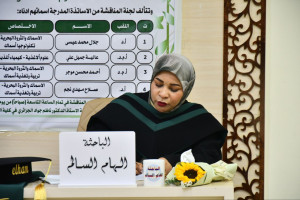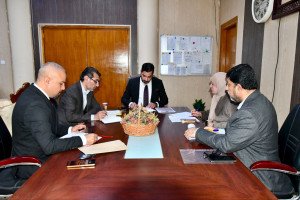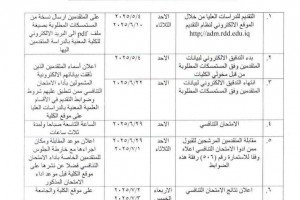
The College of Agriculture at Basra University continues its training course titled "The Role of Chemical Fertilizers in Enhancing the Productivity of Strategic Crops," held in cooperation with the General Company for Agricultural Equipment in Basra Governorate. The course, which targets researchers, specialists, and those interested in agriculture, aims to familiarize participants with the types of chemical fertilizers, their benefits, application methods, and their direct impact on the growth and productivity of various field crops. Emphasis is placed on the optimal use of fertilizers to increase production and achieve agricultural sustainability.
Assistant Professor Dr. Rashed Adel Ibraheem delivered a scientific lecture during the training course, explaining that the soil's fertilizer needs vary depending on soil type, structure, organic matter content, nutrient levels, and the type of crop grown. He emphasized that effective fertilization depends on several factors, including soil analysis results (NPK, pH, EC), crop type and growth stage, irrigation and climatic conditions, irrigation water quality, and the type of fertilizer used.
Dr. Rashed stressed that adopting these criteria in an integrated manner contributes to achieving the highest crop yield and quality, ensuring optimal fertilizer use while minimizing the environmental impact of over-application or improper use.
Professor Dr. Mohammed Abdullah Abdul Karim also delivered a scientific lecture, discussing the plant's needs for essential nutrients. He emphasized that determining the fertilizer application rate should be based on the "nutrient balance" principle, which balances the plant's needs with the soil's nutrient reserves, avoiding both deficiency and excess. He explained that the amount of fertilizer required varies depending on the type of plant, its variety, the expected yield, and the cultivation method. This is determined through precise fertilization programs and field trials, taking into account additional factors such as the crop's sensitivity to fertilizers and the type of fertilizer used.
Public Relations and Communication Unit / Faculty of Agriculture







